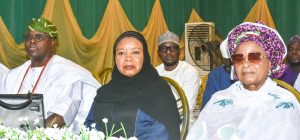
When Danish national Martin Nielsen moved to Kenya to work with a venture capital firm, he quickly switched gears after spotting an opportunity in streaming music and selling downloads.
Fast forward eight years and the Kenya-based company he co-founded and now leads, Mdundo, is listed on the Danish stock market and is posting rapid growth in users in the African markets it serves.
Africa has been attracting international audio streaming firms like Sweden’s Spotify and Apple Music, keen on capitalising on growing internet users and rising demand for legal content.
“The market is getting bigger,” Nielsen told Reuters.
Mdundo’s users jumped 40% to 7 million in the six months to December and the company now aims to reach 18 million users by June 2022, he said.
To hit that goal, it is focusing on Kenya, Tanzania, Uganda, Ghana and Nigeria, offering a platform that does not require high data consumption or storage space, he said.
Demand for local music is also driving growth.
Some of the most popular downloads on Mdundo include gospel music from Kenya’s most populous ethnic group, Kikuyu, and music in the Hausa language in Nigeria.
“It is not about the top ten artists… it is really amazing to look at this local music,” Nielsen said.
Music fans who use illegal sites, 93% of the total according to Mdundo, are also switching to sites like Mdundo, which share their income with musicians.
Artists have flocked to the site, to take advantage of the growing audiences and a piece of the growing revenue pie. Mdundo has 90,000 African music artists.
“We have a way to commercialize our music,” said Kenyan musician Nviiri who paused from strumming his guitar in his studio to check how his music is doing on Mdundo.com via his mobile phone.
Mdundo, which is free to users and makes money through advertising, pays musicians every time their song is streamed or downloaded, sharing 50% of cash from adverts with artists.
Nielsen said he is not losing sleep over competition from bigger rivals like Spotify on the continent.
“It is confirmation that we are not crazy. That is a really strong validation that African music is headed in the right direction,” he said.




电报中文版下载 不以广告为主要盈利模式,更专注于用户体验和隐私保护。
Finest news for all us
We’re on hand to rescue the problem — a qualified team prepared to tackle your plumbing issue and return peace in your property!
Our prompt service facilitates – decrease the requirement for high-cost major restorations later.
Discover our prompt and high-quality work – immediately!
Own grasp the manner alarming the situation feels at the moment moisture puts one’s house together with family’s well-being in peril.
Yet you’re not alone.
We are here in order to shield the property along with the very warmth regarding the family existence, acting carefully together with soundly with the result that all things someone cherish persists undamaged.
Such crew responds promptly in order to block harm and avoid spores, giving someone calm relating to mind.
Furthermore together with this always-on help, you continuously get a partner next to one’s place — equipped to help someone protect yours family protected plus one’s residence full with convenience.
Find peace in your home – Call: 8338561951